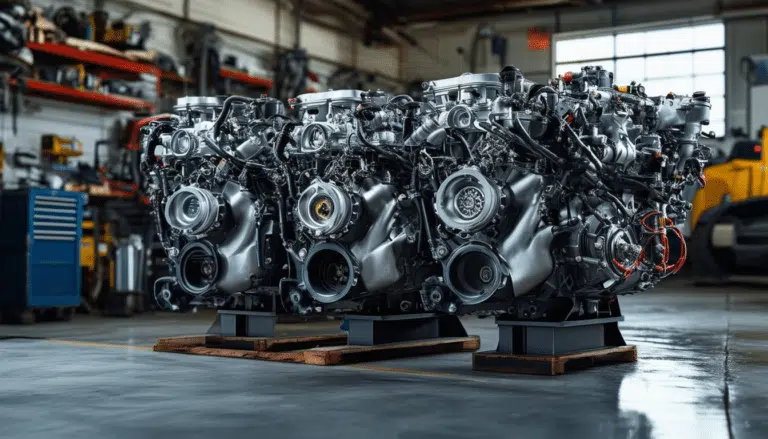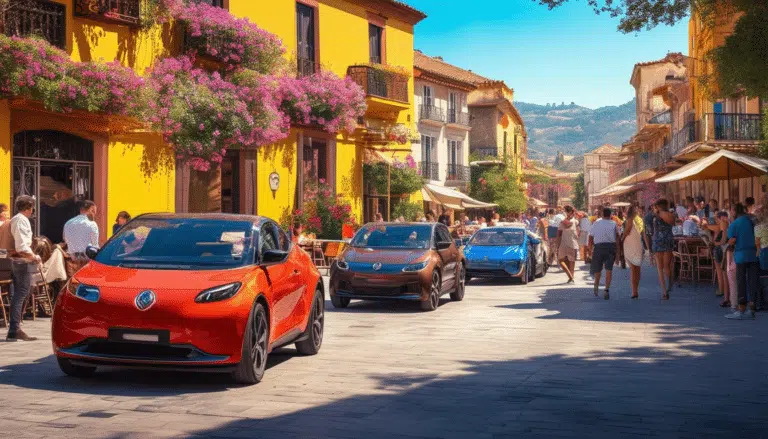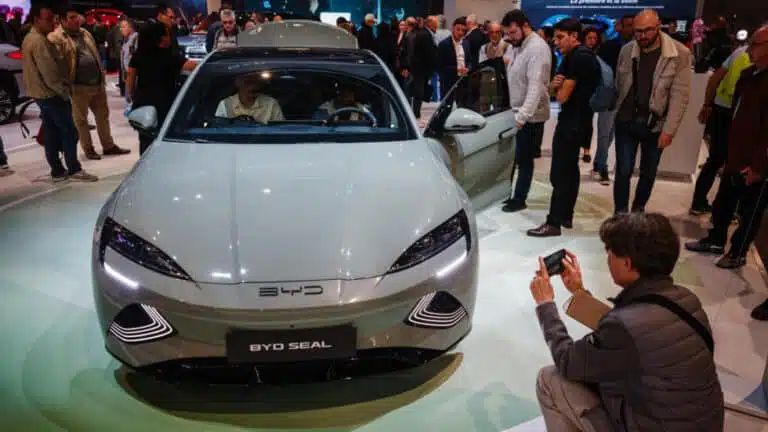¡Attention! You won’t believe these 7 iconic motorcycles that made history
Motorcycles have left an indelible mark on our cultural and technological history. From the iconic models that defined eras to the innovations that set new standards, each bike has its own story to tell. Below, I present a journey through the most iconic motorcycles in history and their invaluable contributions to motorcycling.
SUMMARY:
| main ideas | additional details |
|---|---|
| 🏍️ Evolution of motorcycles | Leave an indelible mark on cultural and technological history |
| 🌟 Iconic models | Introduction of motorcycles like the Vespa and the Ducati 916 |
| 🇺🇸 Harley-Davidson | Historic models like the Model 5D and the WLA from 1942 |
| ⚡ Electric motorcycles | Launch of electric versions of classic models |
Models that have marked history
When talking about bikes that have marked a before and after in history, we cannot overlook a series of models that have left a deep impression on culture and human ingenuity.
The Vespa is one of these gems. Introduced in 1946 by Enrico Piaggio and Corradino D’Ascanio, the Vespa quickly became a symbol of urban mobility, especially in the European cities devastated by World War II. Its elegant aesthetics and functionality led it to be glorified in iconic films such as “Roman Holiday” and “La Dolce Vita.” Today, it remains a popular choice, with modern and electric models keeping its legacy alive.
Another motorcycle that deserves mention is the Ducati 916. Designed by the renowned Massimo Tamburini in 1994, this sports bike revolutionized the aesthetics and engineering of its time. With a 114 HP V-twin engine and adjustable suspensions, the Ducati 916 won multiple Superbike competitions, establishing itself as an icon of two wheels. It even inspired later versions like the Ducati 998 with testastretta cylinder heads.
In the realm of American motorcycles, Harley-Davidson has established a lasting legacy with iconic models like the 1909 Harley-Davidson Model 5D and the 1942 Harley-Davidson WLA. The Model 5D was one of the first to incorporate significant innovations from the brand, while the WLA played a crucial role during World War II.
British motorcycling has also left its mark with the 1959 Triumph Bonneville T120, a motorcycle inspired by speed records in Bonneville, Utah. This motorcycle stood out for its combination of classic design and high performance, being immortalized by Steve McQueen in “The Great Escape.”
In terms of innovation, few bikes can compete with the Honda CB750. Introduced in 1969, it is considered the “Bike of the Century” thanks to its four-cylinder engine, transverse design, and front disc brake. These elements revolutionized the industry and set a new standard for superbikes.
On the other hand, the BMW R32 from 1923 was BMW’s first great success in motorcycling, marking a milestone with its flat-twin engine and double triangle chassis. This iconic motorcycle established design concepts that remained relevant throughout the 20th century.
Most famous motorcycles in history
There are motorcycles whose fame transcends generations, evoking emotions and memories among enthusiasts and non-enthusiasts alike. Here I highlight some examples that are undeniable icons in the world of motors.
The Yamaha RD 350 YPVS from 1984 is a clear example. Nicknamed “killers” for its power and danger, it became a legend among two-stroke motorcycle enthusiasts. Its impressive acceleration left an indelible mark in mountain passes.
Another historical gem is the 1986 Suzuki GSX-R750, known as the mother of superbikes. This model introduced innovations such as a double beam aluminum chassis and a powerful four-cylinder engine, forever changing the landscape of sport motorcycles.
The 1990 Honda Africa Twin 750 also deserves special mention. This motorcycle, famous for its participation in rallies like the Paris-Dakar, is known for its versatility and reliability, making it indispensable for those seeking adventures in difficult terrains.
Of course, we cannot forget the 1922 Indian Chief and the 1920 Indian Scout, both iconic motorcycles from the American brand Indian. They were known for their outstanding performance and attractive design, features that are still valued today.
The 1924 Brough Superior SS100, described as the “Rolls-Royce of motorcycles,” must also be mentioned. This exclusive bike, customized for its clients, stood out for its luxury and performance, marking an era in the history of motorcycling.
Finally, we cannot overlook the 1932 Royal Enfield Bullet, one of the longest-lasting motorcycles still available in the Indian market. It was even supplied to the British army in its time, establishing itself as a living legend.
Comparison of technical characteristics
The following table presents a technical comparison of some of these iconic bikes :
| Model | Year of introduction | Engine | Power | Innovations |
|---|---|---|---|---|
| Vespa | 1946 | 2 strokes | 3.2 HP | Elegant urban mobility |
| Ducati 916 | 1994 | V-twin | 114 HP | Multitubular chassis, adjustable suspensions |
| Harley-Davidson Model 5D | 1909 | V-twin | 6.5 HP | First iconic bike from the brand |
| Triumph Bonneville T120 | 1959 | Parallel twin | 46 HP | Inspired by speed records |
| Honda CB750 | 1969 | 4 inline cylinders | 67 HP | First mass-produced bike with a four-cylinder engine |
| BMW R32 | 1923 | Flat-twin | 8.5 HP | Double triangle-type chassis |
The revolution of electric motorcycles
Today, we are witnessing a new era in the history of motorcycling with the introduction of electric motorcycles. Various brands have launched electric versions of their most iconic models, merging classic design with clean and efficient propulsion technology.
For example, the Vespa has returned with an electric version that maintains its classic aesthetic and adds modern technological components. Similarly, Harley-Davidson and Triumph have also launched electric motorcycles that offer a more sustainable riding experience without sacrificing the performance and aesthetics that characterize them.
This new trend not only responds to the need to reduce carbon emissions but also sets a new standard in terms of technology and sustainability in the motorcycle industry.
For two-wheel enthusiasts, this is an exciting time of transition and innovation. If you are thinking about switching to an electric vehicle, it is important to highlight the importance of installing a charging point at home, thus facilitating the adoption of this technology in your daily life.
The key figures who changed the history of the motorcycle
The history of motorcycling has not only been forged by the motorcycles themselves but also by the key figures who have driven this industry. From designers to riders, these figures have left an indelible legacy.
Enrico Piaggio and Corradino d’Ascanio are the brains behind the creation of the Vespa. Their vision allowed millions of Europeans to access economical and stylish urban mobility during the post-war period.
Massimo Tamburini, the genius behind the Ducati 916, revolutionized the design and performance of sport bikes in the 90s. His innovative approach and attention to detail continue to be a reference in the industry.
Steve McQueen, better known as the “King of Cool,” popularized several British motorcycles, especially the Triumph, both in films and in competitions. His passion for two wheels has inspired generations of motorcyclists.
On the other hand, the contribution of design pioneers is not limited solely to motorcycles. As an enthusiast of vehicles in all their forms, I can affirm that their innovations have also influenced the aesthetics and functionality of modern automobiles.
The stories of these figures, along with the motorcycles they imagined and rode, continue to inspire thousands of enthusiasts worldwide. Each of these iconic bikes and the individuals behind them have led us to discover new forms of freedom on two wheels.



